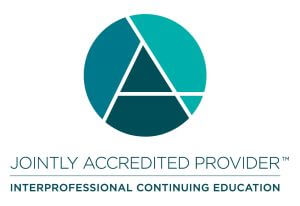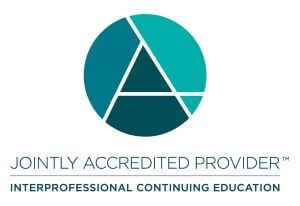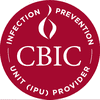
Catalog Advanced Search
-
Contains 1 Component(s) Includes a Live Web Event on 10/03/2024 at 1:00 PM (EDT)
This session outlines the change management steps of a hospital system’s journey to centralized surveillance. Actions taken to address potential obstacles will be presented, along with development of standard work, transparency, conflict resolution, and efficient data feedback to hospital IP programs.
CE: 1 / IPU: 1
Thursday, October 3, 2024 @ 1 pm ET
Carole Leone MSN, BSN, RN, CIC, FAPICIs your organization considering centralized surveillance for healthcare associated infections? The transfer of surveillance duties from hospital based Infection Preventionists to a centralized team of surveillance experts is a journey that may include obstacles such as unwillingness to give up the task, uncertainty of surveillance team expertise, and difficulties in developing the right team with the best fitting team members. The endeavor can be successful with a well thought out plan that includes concepts of change management and the steps of creating a vision, identifying stakeholders, quantifying time, and selling the concept to gain acceptance. This session outlines the change management steps of a hospital system’s journey to centralized surveillance. Actions taken to address potential obstacles will be presented, along with development of standard work, transparency, conflict resolution, and efficient data feedback to hospital IP programs.
Continuing Education (CE) Credit:

In support of improving patient care, The Association for Professionals in Infection Control and Epidemiology, Inc. (APIC) is jointly accredited by the Accreditation Council for Continuing Medical Education (ACCME), the Accreditation Council for Pharmacy Education (ACPE), and the American Nurses Credentialing Center (ANCC), to provide continuing education for the healthcare team.
Nursing:
- APIC designates this activity for 1 Nursing Contact Hours
Physicians:
- APIC designates this live course activity for a maximum of 1 PRA Category 1 Credits™
- Physicians should claim only the credits commensurate with the extent of their participation in the activity.

IPUs
- APIC designates this activity for 1 infection prevention unit(s).
- For more information, please see https://www.cbic.org/CBIC/Recertify/Recertification-by-Continuing-Education.htm
-
You must log in to register
- Member - Free!
- More Information
-
Contains 1 Component(s) Includes a Live Web Event on 09/04/2024 at 1:00 PM (EDT)
Two infection preventionists (IP) will highlight their role on CORHA and the importance of multidisciplinary collaboration in the prevention and control of HAI/AR outbreaks... As council members, Association for Professionals in Infection Control and Epidemiology (APIC) representatives bring expertise in infection prevention, environmental factors, and HAI/AR reporting.
CE: 1 / IPU: 1
Wednesday, September 4, 2024 @ 1 pm ET
Linda Greene RN, BS, MPS,CIC,FAPIC and Mary Alice Lavin MJ, BSN, RN, CIC, FAPICThe COVID pandemic, healthcare outbreaks and concern for antibiotic resistant organisms, highlight the importance of public health and healthcare facilities collaborating effectively to protect patients and prevent harms related to healthcare-associated Infections (HAIs) and antimicrobial-resistant pathogens (AR). The Council for Outbreak Response: Healthcare-Associated Infections and Antimicrobial-Resistant Pathogens (COHRA): works to improve practices and policies at the local, state, and national levels for the detection, investigation, reporting, control, and prevention of HAI/AR outbreaks across the healthcare continuum. Two infection preventionists (IP) will highlight their role on CORHA and the importance of multidisciplinary collaboration in the prevention and control of HAI/AR outbreaks... As council members, Association for Professionals in Infection Control and Epidemiology (APIC) representatives bring expertise in infection prevention, environmental factors, and HAI/AR reporting. Examples of the collaborative work will be presented including the role of APIC members in advancing the crucial role of front -line IPs working collaboratively with their public health colleagues, as well as mechanisms to improve and communicate this crucial role.
Continuing Education (CE) Credit:

In support of improving patient care, The Association for Professionals in Infection Control and Epidemiology, Inc. (APIC) is jointly accredited by the Accreditation Council for Continuing Medical Education (ACCME), the Accreditation Council for Pharmacy Education (ACPE), and the American Nurses Credentialing Center (ANCC), to provide continuing education for the healthcare team.
Nursing:
- APIC designates this activity for 1 Nursing Contact Hours
Physicians:
- APIC designates this live course activity for a maximum of 1 PRA Category 1 Credits™
- Physicians should claim only the credits commensurate with the extent of their participation in the activity.

IPUs
- APIC designates this activity for 1 infection prevention unit(s).
- For more information, please see https://www.cbic.org/CBIC/Recertify/Recertification-by-Continuing-Education.htm
-
You must log in to register
- Member - Free!
- More Information
-
Contains 1 Component(s) Includes a Live Web Event on 08/28/2024 at 1:00 PM (EDT)
This session will address the most common barriers to recruiting and hiring qualified IPs and offer effective and innovative solutions for filling vacant positions.
CE: 1 / IPU: 1
Wednesday, August 28, 2024 @ 1 pm ET
Jennifer Vogelsberg BS, MLS (ASCP), CICMany Infection Prevention and Control (IPC) departments struggle to recruit and hire qualified Infection Preventionists (IPs). Recent global epidemics, heightened attention to device-associated infections, and increasing regulatory requirements highlight the complexity and necessity of the IP role. The role of the IP is one that requires highly specified skills, clinical experience, and robust critical thinking, making the qualified candidate hard to find. This session will address the most common barriers to recruiting and hiring qualified IPs and offer effective and innovative solutions for filling vacant positions. The speakers will discuss ways to diversify and expand the IPC department, strategies for identifying how other professions can support the IPC program, ideas on how to partner with Human Resources to aid in recruitment, and approaches to build excitement for the IP role.
Continuing Education (CE) Credit:

In support of improving patient care, The Association for Professionals in Infection Control and Epidemiology, Inc. (APIC) is jointly accredited by the Accreditation Council for Continuing Medical Education (ACCME), the Accreditation Council for Pharmacy Education (ACPE), and the American Nurses Credentialing Center (ANCC), to provide continuing education for the healthcare team.
Nursing:
- APIC designates this activity for 1 Nursing Contact Hours
Physicians:
- APIC designates this live course activity for a maximum of 1 PRA Category 1 Credits™
- Physicians should claim only the credits commensurate with the extent of their participation in the activity.

IPUs
- APIC designates this activity for 1 infection prevention unit(s).
- For more information, please see https://www.cbic.org/CBIC/Recertify/Recertification-by-Continuing-Education.htm
-
You must log in to register
- Member - Free!
- More Information
-
Contains 1 Component(s) Includes a Live Web Event on 08/22/2024 at 1:00 PM (EDT)
The proposed presentation will present the development process and implementation of electronic healthcare-associated infections (HAIs) review (deep dive) tools.
CE: 1 / IPU: 1
Thursday, August 22, 2024 @ 1 pm ET
Caldwell A. Lewin MSN-IPC, RN, CIC, CPHQ and Tracey R.. Odachowski MSN, BA, RN, CIC, CCRN-K, NE-BCThis proposal surrounds the optimization of data management through electronic methods. The proposed presentation will present the development process and implementation of electronic healthcare-associated infections (HAIs) review (deep dive) tools. Through the development of these tools, our multi-hospital organization has been able to streamline the HAI investigation process and quickly identify organizational trends and opportunities for improvement in our prevention efforts. We will share the two-year journey of this process with the lessons learned and the currently developed electronic investigation tools, and our strategy for maintaining a single repository. We will also discuss how we present our HAI trends across the system for individual facility and organizational events maintained in real-time. This process has significantly increased facility and corporate awareness of HAI events and improved the engagement and buy-in in supporting prevention efforts. The targeted audience is infection prevention teams looking to strengthen participation across their organization with the HAI review process and save time in tracking and reporting trends. Additionally, this process has significantly increased multidisciplinary engagement in infection prevention.
Continuing Education (CE) Credit:

In support of improving patient care, The Association for Professionals in Infection Control and Epidemiology, Inc. (APIC) is jointly accredited by the Accreditation Council for Continuing Medical Education (ACCME), the Accreditation Council for Pharmacy Education (ACPE), and the American Nurses Credentialing Center (ANCC), to provide continuing education for the healthcare team.
Nursing:
- APIC designates this activity for 1 Nursing Contact Hours
Physicians:
- APIC designates this live course activity for a maximum of 1 PRA Category 1 Credits™
- Physicians should claim only the credits commensurate with the extent of their participation in the activity.

IPUs
- APIC designates this activity for 1 infection prevention unit(s).
- For more information, please see https://www.cbic.org/CBIC/Recertify/Recertification-by-Continuing-Education.htm
-
You must log in to register
- Member - Free!
- More Information
-
Contains 1 Component(s) Includes a Live Web Event on 08/21/2024 at 1:00 PM (EDT)
An in-depth exploration of the latest infection control requirements established by the Joint Commission, the nation's oldest and most extensive standards-setting and accrediting body in health care.
CE: 0 / IPU
August 21, 2024 @ 1 pm ET
Angela M. Vasa, MSN, RN, Carrie Billman, MHPE, RN, CIC, Kari Love, RN, PhDc, CIC, FAPIC, and Pam Farrare-Wilmore, MT(ASCP), CIC
An in-depth exploration of the latest infection control requirements established by the Joint Commission, the nation's oldest and most extensive standards-setting and accrediting body in health care. Our panel of experts will review the key changes to the standards, which took effect on July 1, 2024, and will discuss strategies for successful implementation and compliance. Attendees will also receive valuable resources and tools to help their organizations seamlessly adopt these new standards.
Continuing Education (CE) Credit:

In support of improving patient care, The Association for Professionals in Infection Control and Epidemiology, Inc. (APIC) is jointly accredited by the Accreditation Council for Continuing Medical Education (ACCME), the Accreditation Council for Pharmacy Education (ACPE), and the American Nurses Credentialing Center (ANCC), to provide continuing education for the healthcare team.
Nursing:
- APIC designates this activity for 0 Nursing Contact Hours
Physicians:
- APIC designates this live course activity for a maximum of 0 PRA Category 1 Credits™
- Physicians should claim only the credits commensurate with the extent of their participation in the activity.

IPUs:
- APIC designates this activity for 0 infection prevention unit(s).
- For more information, please see https://www.cbic.org/CBIC/Rece...
-
You must log in to register
- Non-member - Free!
- Member - Free!
- More Information
-
Contains 1 Component(s) Includes a Live Web Event on 08/14/2024 at 1:00 PM (EDT)
Join APIC for a conversational webinar involving all things social media.
CE: 0 / IPU
Wednesday, August 14, 2024 @ 1 pm ET
Chaz Rhone, MPH, CIC, FAPIC, Saskia Popescu, and Claire Kilpatrick DSc, MSc, PGDipInfControl, RN, MFTM RCPS (Glas)
Join APIC for a conversational webinar involving all things social media. Learn how to elevate your leadership potential, grow your network, navigate feedback, and much more! Hear from your fellow Infection Preventionists on how they built their professional social media platforms and where their virtual journeys began. Whether you're starting out or looking to refine your strategy, this webinar offers actionable insights to propel your virtual presence forward. Don't miss out on this opportunity to learn, connect, and empower your social media journey.
Continuing Education (CE) Credit:
In support of improving patient care, The Association for Professionals in Infection Control and Epidemiology, Inc. (APIC) is jointly accredited by the Accreditation Council for Continuing Medical Education (ACCME), the Accreditation Council for Pharmacy Education (ACPE), and the American Nurses Credentialing Center (ANCC), to provide continuing education for the healthcare team.
Nursing:
- APIC designates this activity for 0 Nursing Contact Hours
Physicians:
- APIC designates this live course activity for a maximum of 0 PRA Category 1 Credits™
- Physicians should claim only the credits commensurate with the extent of their participation in the activity.
IPUs:
- APIC designates this activity for 0 infection prevention unit(s).
- For more information, please see https://www.cbic.org/CBIC/Rece...

Chaz Rhone MPH, CIC, FAPIC
Assistant Vice President of Infection Prevention
HCA Healthcare North Florida Division
Chaz earned a Master of Public Health in Epidemiology from the University of Florida and began his career as an Infection Preventionist in 2007. He is currently the Assistant Vice President of Infection Prevention at HCA Healthcare North Florida Division and serves as co-chair of the APIC Academic Pathway Steering Committee. His professional passions include advancing the field of IP through leadership development of IPs and advocating for MPH-ers as equally qualified candidates for IP positions.

Claire Kilpatrick
Consultant
WHO
Claire is a graduate of the University of Glasgow (with a PGDiploma in IPC and MSc in medical sciences), founding director of a small global health consultancy company and has been a consultant with WHO since 2008 (at global, regional and country level). She currently works across a number of sectors on infection prevention and control and water, sanitation and hygiene with a focus on guidance, implementation and improvement tools and reporting on global progress. She also has with a wealth of experience in campaigning and is currently involved in two critical projects that aim to outline priority research questions for both hand hygiene and environmental cleaning. One of her most recent publications is ‘the effectiveness of hand hygiene interventions for preventing community transmission or acquisition of novel coronavirus or influenza infections: a systematic review’.
-
You must log in to register
- Member - Free!
- More Information
-
Contains 1 Component(s) Includes a Live Web Event on 08/08/2024 at 1:00 PM (EDT)
Join APIC and CBIC to learn about CIC® recertification options. An overview of infection prevention units (IPUs) and the recertification examination will be provided.
CE: 0 / IPU: 0
Thursday, August 8, 2024 @ 1 pm ET
Steven J. Schweon RN, MPH, MSN, CIC, LTC-CIP, CPHQ, FSHEA, FAPIC and Gail Fraine, RN, MMHC, BSN, CICJoin APIC and CBIC to learn about CIC® recertification options. An overview of infection prevention units (IPUs) and the recertification examination will be provided.
Continuing Education (CE) Credit:

In support of improving patient care, The Association for Professionals in Infection Control and Epidemiology, Inc. (APIC) is jointly accredited by the Accreditation Council for Continuing Medical Education (ACCME), the Accreditation Council for Pharmacy Education (ACPE), and the American Nurses Credentialing Center (ANCC), to provide continuing education for the healthcare team.
Nursing:
- APIC designates this activity for 0 Nursing Contact Hours
Physicians:
- APIC designates this live course activity for a maximum of 0 PRA Category 1 Credits™
- Physicians should claim only the credits commensurate with the extent of their participation in the activity.

IPUs
- APIC designates this activity for 0 infection prevention unit(s).
- For more information, please see https://www.cbic.org/CBIC/Recertify/Recertification-by-Continuing-Education.htm
-
You must log in to register
- Non-member - Free!
- Member - Free!
- More Information
-
Contains 5 Product(s)
Topics Include: Creating a Revenue Generating Infection Control Program, enhancing Partnerships Between Infection Prevention and Public Health and much more!
1 CE/IPU per webinar in the series
Topics Include: Creating a Revenue Generating Infection Control Program, enhancing Partnerships Between Infection Prevention and Public Health and much more!
Continuing Education (CE) Credit:

In support of improving patient care, The Association for Professionals in Infection Control and Epidemiology, Inc. (APIC) is jointly accredited by the Accreditation Council for Continuing Medical Education (ACCME), the Accreditation Council for Pharmacy Education (ACPE), and the American Nurses Credentialing Center (ANCC), to provide continuing education for the healthcare team.
Nursing:
- APIC designates this activity for 1 Nursing Contact Hours
Physicians:
- APIC designates this live course activity for a maximum of 1 PRA Category 1 Credits™
- Physicians should claim only the credits commensurate with the extent of their participation in the activity.

IPUs
- APIC designates this activity for 1 infection prevention unit(s).
- For more information, please see https://www.cbic.org/CBIC/Recertify/Recertification-by-Continuing-Education.htm
-
You must log in to register
- Member - Free!
- More Information
-
Contains 1 Component(s) Includes a Live Web Event on 08/07/2024 at 1:00 PM (EDT)
facility's overall performance is influenced partially by whether any of three different vaccinations were provided to residents. These three vaccinations are a few of several independent quality indicators on which a facility's star rating is based.
CE: 1 / IPU: 1
Wednesday, August 7, 2024 @ 1 pm ET
Mary Cole RN, MS, CNRN, CCRN, SCRN, CIC and Melissa Galloway LPNLong term care leaders struggle with low reimbursement and excessive regulatory demand. One such regulation is the administration of vaccinations. A facility's overall performance is influenced partially by whether any of three different vaccinations were provided to residents. These three vaccinations are a few of several independent quality indicators on which a facility's star rating is based. With the infection preventionist coordinating the vaccination process in collaboration with individual nurse managers, our facility has been able to simultaneously improve quality scores, protect our residents, and capture all potential revenues. In turn our infection prevention program is revenue generating.
Continuing Education (CE) Credit:

In support of improving patient care, The Association for Professionals in Infection Control and Epidemiology, Inc. (APIC) is jointly accredited by the Accreditation Council for Continuing Medical Education (ACCME), the Accreditation Council for Pharmacy Education (ACPE), and the American Nurses Credentialing Center (ANCC), to provide continuing education for the healthcare team.
Nursing:
- APIC designates this activity for 1 Nursing Contact Hours
Physicians:
- APIC designates this live course activity for a maximum of 1 PRA Category 1 Credits™
- Physicians should claim only the credits commensurate with the extent of their participation in the activity.

IPUs
- APIC designates this activity for 1 infection prevention unit(s).
- For more information, please see https://www.cbic.org/CBIC/Recertify/Recertification-by-Continuing-Education.htm
-
You must log in to register
- Member - Free!
- More Information
-
Contains 3 Component(s), Includes Credits Recorded On: 07/25/2024
All levels of infection preventionists will benefit from our creative approach to infection prevention education, including ambulatory, home health, long-term care, and inpatient arenas
CE: 1 / IPU: 1
Thursday, July 25, 2024 @ 1 pm ET/div>Maureen Lansing MPH, BSN, RN, Nuria Acosta BA, RN, CCRN-K, CIC, and Brigid Constantino, BSN, RN, CIC
Post Covid culture between frontline staff and Infection Preventionists needs an enema. An infusion of caregivers trained and entered the workforce during the pandemic, missing out on critical kinesthetic practice and whose primary clinical experience was lacking. Elevating back to basics by infusing creative tactics, infection preventionists can upskill these caregivers and improve patient outcomes. Presentations built on a foundation of slide decks and rote lecturing are no longer the norm and just-in-time reminders may fall on multitasking, unfocused ears. Adult education is improved, reaching more of the audience, by crossing all levels of instruction. When we reimagine activities that engage and promote compliance with Infection Prevention practices, stickiness ensues. Using multimodal stations to teach infection preventionists, we will demonstrate how to develop fun, new ways to practice safe patient care. We will incorporate visual, auditory, tactile, and kinesthetic learning and infuse interpersonal, interactive, and developmentally appropriate coaching, as well as how to use assimilation dialogue considering diversity of staff’s individual language preferences, culture, and cognitive perspectives. Examples of such include tackling microbial contamination using simulated ultraviolet gel and blacklight for patient care techniques. These can demonstrate consequences of poor patient care practices like cleaning patients and the environment, device insertion, precise culturing, water splashes, and hand hygiene. Storytelling practice will impart the importance of changing the front-line staff member’s external locus of control to an internal locus of control of patient care. Developing competitions, applying child life techniques to improve engagement, and using positive reinforcement are other elements to be presented. Each of the elements is portable, not classroom setting based, which will aid in bringing the education to the teams. All levels of infection preventionists will benefit from our creative approach to infection prevention education, including ambulatory, home health, long-term care, and inpatient arenas
Continuing Education (CE) Credit:

In support of improving patient care, The Association for Professionals in Infection Control and Epidemiology, Inc. (APIC) is jointly accredited by the Accreditation Council for Continuing Medical Education (ACCME), the Accreditation Council for Pharmacy Education (ACPE), and the American Nurses Credentialing Center (ANCC), to provide continuing education for the healthcare team.
Nursing:
- APIC designates this activity for 1 Nursing Contact Hours
Physicians:
- APIC designates this live course activity for a maximum of 1 PRA Category 1 Credits™
- Physicians should claim only the credits commensurate with the extent of their participation in the activity.

IPUs
- APIC designates this activity for 1 infection prevention unit(s).
- For more information, please see https://www.cbic.org/CBIC/Recertify/Recertification-by-Continuing-Education.htm

Maureen D. Lansing, MPH, BSN, RN, CIC, CPPS

Brigid Constantino, BSN, RN, CIC, CPPS
Brigid Constantino RN, BSN, CIC, CPPS is an Infection Prevention Clinical Coordinator at Jersey Shore University Medical Center in Neptune, NJ. This is a part of the Hackensack Meridian Health Network. She just celebrated her 13th anniversary with the network. She has over 15 years experience as a registered nurse. She holds a Bachelor of Arts in Elementary Education from Rowan University and a Bachelor of Science in Nursing from Kean University. She is an active member of APIC and CIC certified since 2015. She has a passion for high reliability principles and recently earned her CPPS certification, certified professional in patient safety.

Nuria Acosta BA, RN, CCRN-K, CIC, CPPS
-
You must log in to register
- Member - Free!
- More Information









